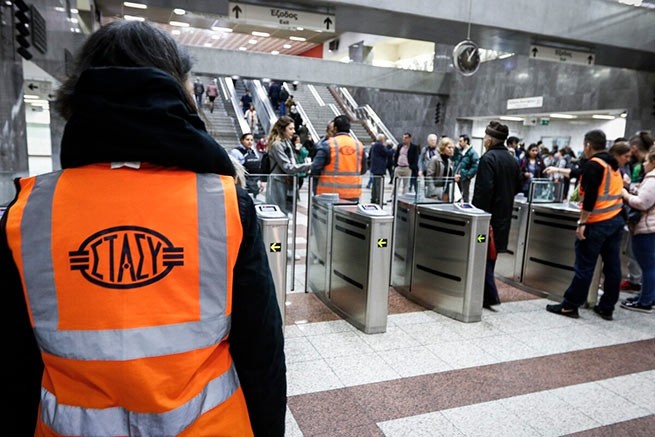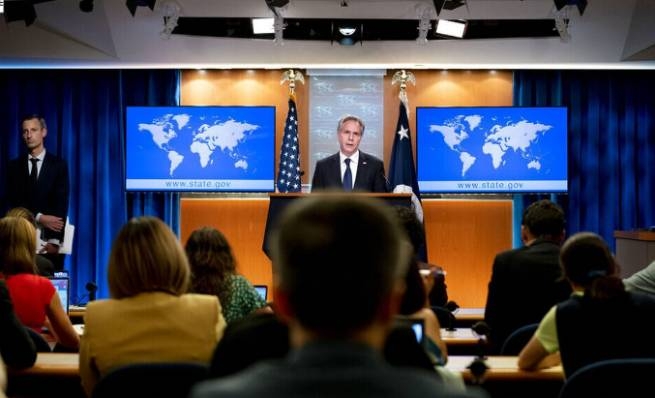Ankara is torn between F-16s and S-400s, causing real irritation in Washington. It is vital for Turkey to upgrade its fighter aircraft fleet, as the country’s air force has lost a significant portion of its fighter aircraft in recent years.
The United States is threatening sanctions but is discussing with Turkey the sale of 40 F-16 fighters and the modernization of about 80 more fighter jets in service with the Turkish Air Force. Negotiations are becoming more complex amid Russia’s announcement of Ankara’s purchase of a second S-400 anti-aircraft missile battery.
State Department spokesman Ned Price again warned Ankara of the “risk of sanctions” at a briefing for diplomatic editors when asked by reporters about Turkey’s continued acquisition of Russian S-400s:
“Our position on Turkey’s purchase of the S-400 is well known, and I would refer you to the Turkish government to talk about its defense procurement plans. But we have repeatedly stated that Russia’s brutal and unjustified war against Ukraine makes it vital now more than ever that all countries avoid doing business with the Russian defense sector This exposes them to the risk of sanctions I think there is some – at least some – confusion or complexity in this matter We will have to wait and see what happens but we are not aware of any new developments on this matter, so for now we will refer you to the Turkish authorities to find out about their plans.”
However, the “uncertainty” and “ignorance” of the State Department was dispelled by a TASS telegram, the message came at the most decisive moment. A Russian agency reported on Tuesday (while a Turkish delegation was in Washington for talks on US F-16s) about statements by Dmitry Sugaev, head of Russia’s Defense Cooperation Agency. He allegedly confirmed Turkey’s purchase of a second S-400 battery:
“I want to note that the relevant contract has already been signed. It includes local production (in Turkey) of some components of the system.”
Ankara has been quick to downplay this fact by stating that “there are no new agreements” and this is a continuation of the original agreement. A Turkish official told Reuters:
“The initial contract signed with Russia for the purchase of S-400s already included two batches. The purchase of the second batch was included in the initial project and the corresponding contract.”
It is worth recalling that Ankara ordered the first batch of S-400s in 2017 and received them in July 2019, drawing ire in Washington. The move led to Turkey’s removal from the F-35 fighter program and the imposition of sanctions against the head of the Defense Industry Directorate, Ismail Demir, and three other Turkish officials from the same agency. The reason was the risk that Russia would have access to important information about the safety of the latest fifth-generation fighter, since the S-400’s powerful radar system could render the F-35’s comparative advantage useless.
After the last few months persistent bargaining between Turkish President Recep Tayyip Erdogan and Joe Biden last month, the US president publicly supported granting Ankara’s request for F-16s, saying it would strengthen NATO. But the presidential promise to Erdogan must be supported in Congress.
Recently, the House of Representatives passed an amendment according to which the US President must press Turkey to stop overflights of the Greek islands so that it can acquire F-16s. That is, the Chris Pope amendment bans arms sales to Turkey unless Congress receives assurances that Ankara has not violated the sovereignty of any NATO ally – in this case Greece – through overflights or violating airspace for at least six months.
It is extremely important for Turkey to update its fighter fleet, which has lost a significant part of its power. It has shrunk in terms of aircrew since hundreds of officers accused of involvement in the 2016 coup were excluded from it. And also in terms of equipment – Turkey risks being left with an outdated fleet of fighters after Ankara withdraws from the new generation F-35 fighter jet program in accordance with the Countering America’s Adversaries Through Sanctions Act (CAATSA).
On Monday, a Turkish delegation traveled to the United States to conduct extremely important talks for the country. But even before the Turkish delegation began negotiations on the F-16, the “damage” was inflicted by Moscow: TASS announced the sale of the second S-400 system to Turkey, reports CNN Greece.







More Stories
In an unequal fight with a cockroach, a Japanese… blew up his own house
A man with a grenade entered the Iranian consulate in Paris
12 American B-2 Spirit strategic bombers take off from Missouri